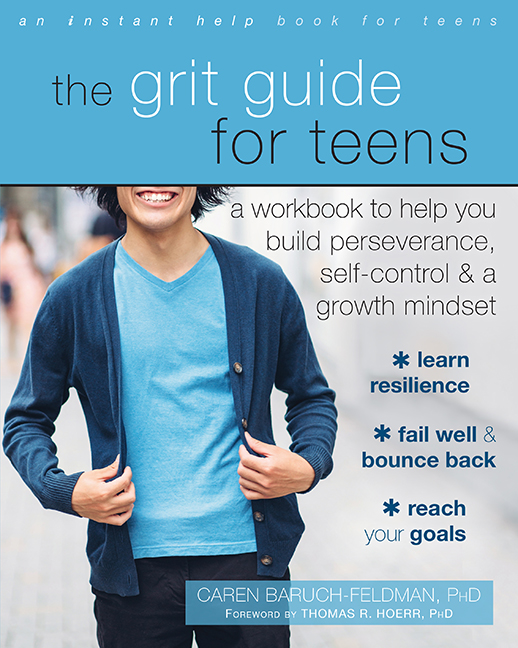Often when we are trying to work on our grit goal, there may be two competing voices in our heads: a loud, impulsive voice directing us toward more immediate rewards, and a quiet, thoughtful voice encouraging us to consider long-term outcomes. When you are trying to stick to a goal or overcome a challenge, you will be more successful if you can tune into what you know will feel good in the long term and quiet down what feels good right now (in the short term). By adopting a mind-set that focuses on the long term, your grit will grow.
We do what feels good in the moment because we value immediate rewards at the expense of our goals.
We often gravitate to what feels good in the moment because we fall into the present bias—that is, a tendency to value immediate rewards at the expense of future goals. We do this because the future can feel abstract and intangible, while the present moment is right in front of us. We feel disconnected from our future self, making it harder to connect with how we might feel when our long-term goal is accomplished. For example, in the moment, we might choose to eat that piece of cake because its deliciousness is crystal clear, whereas our long-term goal about health is less apparent.
See also: How Fear of Failure Feeds Procrastination
Our present bias makes short-term attractions more tempting. In addition, we tend to be overly optimistic about our future self, expecting that in the future we will make better decisions. But when the future comes, we are once again our present-biased selves. For example, maybe you plan to wake up early on Saturday morning to study. But when Saturday comes, you can’t get up. So you say to yourself, I’ll get up early next Saturday, thinking that you’ll be more motivated next Saturday.
However, when next week comes—surprise, surprise—you are the same person you were last week: the person who wants to stay in bed. Nothing has changed! This process causes us to favor a reward that arrives sooner rather than later, even if the later reward is better. We choose a few minutes of sleep (small reward) over the good grades that extra studying might bring (big reward).
This is not to say that there is no place for what feels good in the moment. There absolutely is! It’s okay to eat the occasional piece of cake, to sleep in, or just let loose. But my goal is for you to be in charge of your brain as opposed to having part of your brain be in charge of you.
What can parents and teachers do to help boost grit?
Download a free guide!
 Caren Baruch-Feldman, PhD, is a clinical psychologist and a certified school psychologist. She maintains a private practice in Scarsdale, NY, and works as a school psychologist in Harrison, NY. Baruch-Feldman has authored numerous articles and led workshops on topics such as cognitive behavioral therapy (CBT) techniques, helping children and adults cope with stress and worry, helping people change, and developing grit and self-control. She is the author of The Grit Guide for Teens.
Caren Baruch-Feldman, PhD, is a clinical psychologist and a certified school psychologist. She maintains a private practice in Scarsdale, NY, and works as a school psychologist in Harrison, NY. Baruch-Feldman has authored numerous articles and led workshops on topics such as cognitive behavioral therapy (CBT) techniques, helping children and adults cope with stress and worry, helping people change, and developing grit and self-control. She is the author of The Grit Guide for Teens.


 2024 Peace Playbook: 3 Tactics to Avoid Clashes with Your Partner
2024 Peace Playbook: 3 Tactics to Avoid Clashes with Your Partner